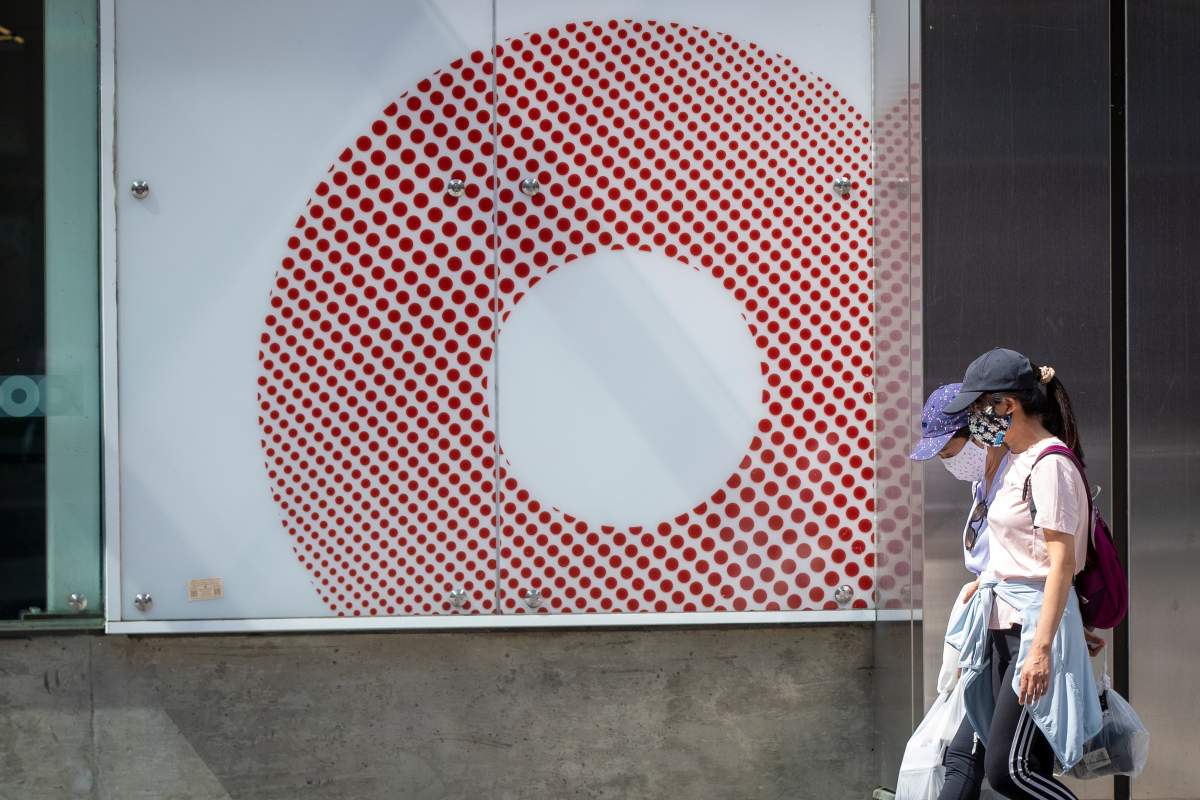OC Transpo is proposing to raise fares 2.5 per cent in 2022 based on a draft budget that projects ridership on Ottawa buses and light-rail trains rising back to pre-pandemic levels over the course of the year.

The transit agency’s draft budget was tabled Wednesday afternoon after the citywide budget was presented at council earlier that morning.
The cost of a single adult fare paid by card would rise to $3.70 under the new scheme, while a monthly pass would be priced at $125.50. The costs of the EquiPass, EquiFare and Community Pass would remain frozen at 2018 levels for another year.

OC Transpo is facing cost pressures of $60.6 million due to COVID-19 in the year ahead, largely the result of lower ridership.
But projections built into the 2022 budget show staff are expecting ridership levels to grow steadily over the year and eventually reach pre-COVID-19 norms.
Pat Scrimgeour, OC Transpo’s director of transit customer systems and planning, said Wednesday that Ottawa’s transit system hit 45 per cent of pre-pandemic ridership at the end of September, even as the city’s light-rail system experienced yet another derailment that has kept the train off the tracks ever since.
OC Transpo is forecasting it will hit 60 per cent of normal ridership levels to start 2022, which may come after a month of no-charge transit fares in December if the trains are running again.

Get daily National news
As part of its financial projections, the transit agency expects an average of 82 per cent of pre-pandemic ridership levels in 2022, rising all the way back to 100 per cent by the end of the year.
Those predictions come despite a number of unknowns, including the status of the COVID-19 pandemic.
The biggest outlier, transit commission chair Allan Hubley told reporters after the budget was tabled Wednesday, is the federal government’s return-to-work strategy. Without that input, it’s impossible to say how many civil servants will be relying on the train or buses to commute into downtown Ottawa.
“We need to hear from the federal government what they’re going to do with their workers,” Hubley said.
“That’s the unknown here.”
Scrimgeour couched OC Transpo’s ridership forecast by saying the figures are a baseline rather than a hard prediction.
“It’s a number to build a budget on so that we know that we have enough transit service running if ridership is higher and we know how we’re going to cope with the financial situation if ridership is lower,” he said.
The draft budget includes plans for temporary service reductions across the transit system to save $11 million next year.
Further service cuts are in the cards if the federal and provincial governments don’t come through with backstop funding for municipal transit systems, but OC Transpo also has a Plan B to avoid the worst-case scenario that includes deferring capital spending and leaving some vacant positions unfilled.
The City of Ottawa’s chief financial officer, Wendy Stephanson, said she was confident based on discussions at the Big City Mayors’ Caucus that a “multi-year deal” for transit support is coming, but said OC Transpo has contingencies in place if the money isn’t there.
“We’ve got a clear plan behind all this is something should fall through,” she said.
Hubley defended the choice to raise transit fares in the new year even as the Confederation Line remains down for an eighth week since the Sept. 19 derailment.
He said the $5.4 million that the fare hike is expected to generate in 2022 will be put towards customer service improvements like call centre and social media staff, which will in turn improve confidence in the turbulent system.
“What we’re using increased fares for is to invest in the system, which will help make the system more reliable, more user-friendly,” he said.
The city is also planning to spend $625,000 on a marketing campaign that will attract lapsed and new riders to the system in 2022.
Scrimgeour said the proposed advertising would focus on how the transit system enables residents to enjoy restaurants, football and hockey games in a newly reopened Ottawa, assuming the public health situation continues to improve.
“We want to remind everyone, ask everyone, to participate in their city. Enjoy the fact that the whole city has reopened from a couple of difficult years,” he said. “Particularly, that OC Transpo, the city’s transit system, is there to carry them where they need to go.”
Ottawa’s transit commission will consider the budget and hear from the public at its next meeting on Nov. 17. The final budget will be considered at the Dec. 8 meeting of city council.



_848x480_1397405763961.jpg?h=article-hero-560-keepratio&w=article-hero-small-keepratio&crop=1&quality=70&strip=all)



Comments
Want to discuss? Please read our Commenting Policy first.